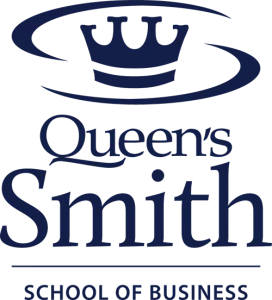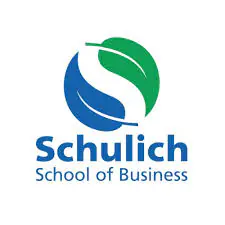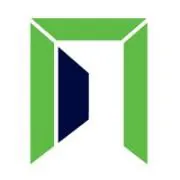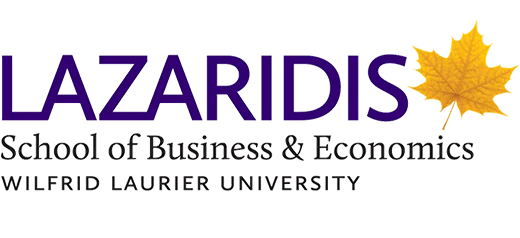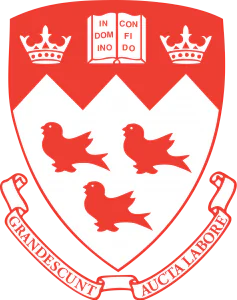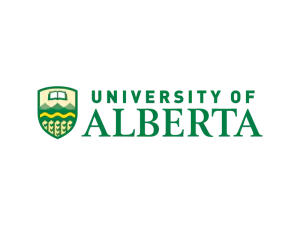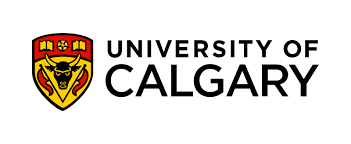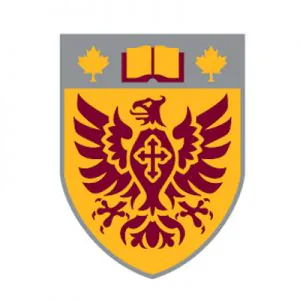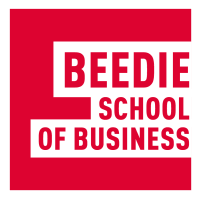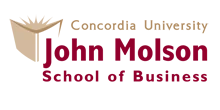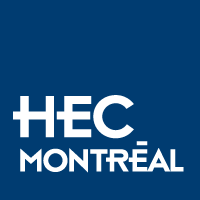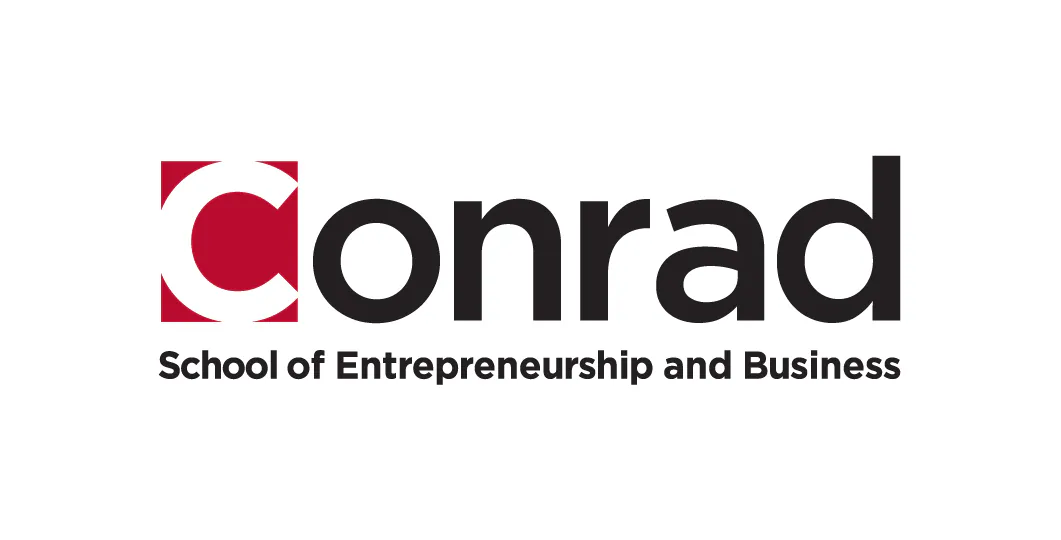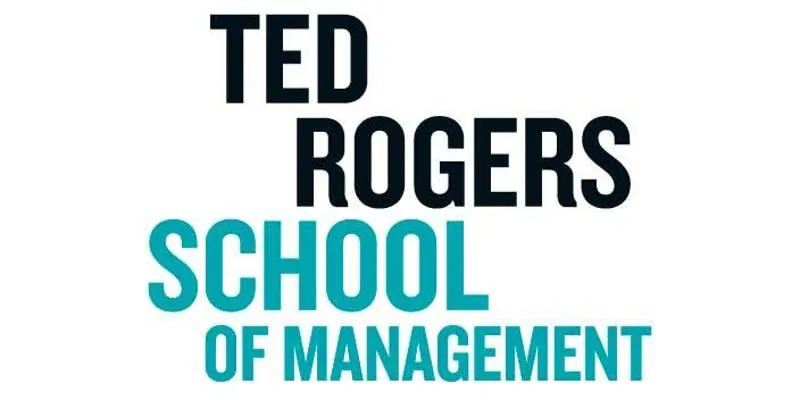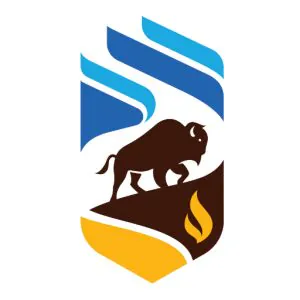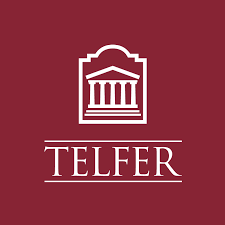1.
Smith School of Business at Queen's University 5/5 (10 reviews)
2.
Ivey Business School 4.9/5 (9 reviews)
3.
Schulich School of Business 4.85/5 (6 reviews)
4.
UBC Sauder School of Business 5/5 (2 reviews)
5.
Rotman School of Management 5/5 (2 reviews)
6.
Wilfrid Laurier University Lazaridis School of Business and Economics 5/5 (4 reviews)
7.
McGill Desautels Faculty of Management 4.8/5 (5 reviews)
8.
University of Alberta 4.5/5 (4 reviews)
9.
University of Calgary Haskayne School of Business 5/5 (5 reviews)
10.
DeGroote School of Business 4.8/5 (5 reviews)
11.
Simon Fraser University Beedie School of Business 4.75/5 (4 reviews)
12.
Concordia University John Molson School of Business 4.8/5 (5 reviews)
13.
HEC Montreal 4.75/5 (4 reviews)
14.
University of Waterloo Conrad School of Entrepreneurship and Business 5/5 (4 reviews)
15.
Ted Rogers School of Management, Toronto Metropolitan University 5/5 (2 reviews)
16.
Dalhousie University Rowe School of Business 5/5 (4 reviews)
17.
University of Manitoba 3.65/5 (3 reviews)
18.
University of Victoria Peter B. Gustavson School of Business 5/5 (4 reviews)
19.
Telfer School of Management 5/5 (4 reviews)
Smith School of Business at Queen's University

The Smith School of Business at Queen’s University in Kingston, Ontario, has six areas of focus for prospective students to choose from: Sustainable finance, customer analytics, business venturing, social impact, corporate reporting and professionalism, and business research. More than 3,000 students study to earn their bachelor’s degree, master’s, graduate diploma, or Ph.D. at Smith School each year.
What sets Smith School of Business apart?
Undergraduate students at Smith School of Business can apply for the BCom program, a four-year degree that emphasizes accounting and digital business technologies in the first two years. Smith prides itself on its job placement rates for all programs, with the career advancement centre helping to get 96 per cent of bachelor of commerce grads employed within six months.
Graduate base salaries can range from an average of $64,932 to a high of $127,415. Average salaries for a Smith School Bcom grad range between $44,880 (marketing) and $75,613 (financial services) depending on the industry and function.
What Students Are Saying
“Queen’s is consistently ranked among the best in the world. You can find average salaries and graduation rates on CourseCompare and on Smith’s website. The numbers speak for themselves. But the best things about Queen’s are the people, the community and the networks. You will probably have fun here while meeting the future CEO of a tech startup or leader in finance and consulting. QC doesn’t set up internships for you and you will have to find one on your own, but recruiters are always on campus and profs are in your court and available to help you. There are also 40+ clubs to join where you can meet amazing people. There are regular conferences happening that attract first-rate speakers, and the exchange program is amazing and not one to be missed. Queen’s and Ivey at Western are both excellent, but I chose Queen’s because it’s a 4-year program. Ivey begins in year three and I didn’t want to have to compete to get in and then make friends halfway through my undergrad experience. To summarize, Queen’s is where future business leaders are being taught. The community is second-to-none and the career results speak for themselves. ”
David K., Bachelor of Commerce
The Curriculum
Students take a range of business courses including Introduction to Commerce, Financial Accounting, Mathematical Analysis for Management, Organizational Behaviour, Managerial Statistics and more with a range of options for specialization in the third year.
Students can pursue double degrees with Peking University’s Guanghua School of Management with years one and two at Smith in Kingston, and years three and four in Beijing. Another option is to also pursue a Certificate in Social Impact, or a combined Bachelor of Commerce/ Juris Doctor (JD) program in six years.
A key feature of Smith Commerce is the international exchange semester option in years three or four.
Admission Requirements
The School’s BCom is one of the hardest in Canada to get into, with an annual average cut off of about 87 per cent for incoming students — and a job placement rate of 98 per cent. Corporate partnerships with financial industry leaders such as Scotiabank and IBM assist with funding and technological improvements at the school at every level, where many graduates go on to do internships or fill high-paying associate roles immediately after graduation.
Locations
Kingston, Ontario
Ivey Business School

The Ivey Business School located in London, Ontario is one of the country’s top providers of real-world business education. Western specializes in case-method learning, essentially a simulation of a real-world experience where students must decide what to do. Within several months of graduation, 91 per cent of students secure a job in their field and earn an average salary of $115,000. Roughly 1,300 undergraduate students and 300 postgrads study at Ivey each year.
Western’s Ivey Business School was the first North American business program to offer programs in Hong Kong with the EMBA program at Cheng Yu Tung Management Institute. Ivey Business School Asia offers ICE, AMT, and specialty China consortium programs for students to get an upper hand in international business markets.
What sets the Ivey Business School apart?
Ivey offers a Bachelor of Management and Organizational Studies program and a four-year Honours Business administration (HBA) program centered around the Ivey Leadership Essentials, five aspects of business management that the school hopes to instil in each student.
The Ivey HBA and the Bachelor of Management and Organizational Studies Programs at Western are structured differently and prepare students with different knowledge and skills. The BMOS Program is made up of a wide variety of courses from the Faculties of Arts, Social Science and Science. The true distinction of an Ivey HBA is in the Ivey Leadership Essentials that are developed in every HBA grad.
Those aspects are leveraging team talent, managing priorities, embracing complexity, taking action, and communicating persuasively. The school claims there are five interlinked elements that sets Ivey’s HBA program apart from the rest: Classmates (your network), program structure (freedom to explore academic interests in the first two years before choosing career options), learning environment (integrated experience), knowledge transfer (high engagement in class) and career management (personalized career plan).
Ivey does not offer a co-op program, but it does have summer internship opportunities for students. About 96 per cent of students find summer employment compared to a co-op rate of 80 per cent at other schools and one third of Ivey’s summer internships resulted in full-time job offers with the same organization. As well, in 2022, 93 per cent of students found summer employment with an average weekly salary of $997. And 98 per cent of Ivey HBA grads seeking employment received a job offer within six months of graduation.
The average total compensation (base salary, signing bonus and other guaranteed compensation) for an HBA grad was $74,903 in 2021. Companies that partner with Ivey for hiring include PwC, Deloitte, Corus Entertainment, EllisDon, MaRS Discovery District, Ford Motor Company of Canada Ltd, Dow Chemical of Canada Ltd, EY, Google, government organizations, L’Oreal and many more.
The Curriculum
You will cover the essentials of what every good manager needs to know and to be able to do. Career Management is built into the curriculum to help you define your career goals and develop a job search strategy to get you there. Business courses in third and fourth years include Leading People and Organizations, Accounting and Financial fundamentals, Marketing, Decision Making with Analytics, as well as core courses such as Finance, Leveraging Information Technology and Communications.
Admission Requirements
Admission requirements include a 93 per cent average in your best Grade 12 high school courses, including English, as well as completion of a mathematics course for university-bound students and demonstrated leadership in extracurricular activities, community involvement, and work experience.
Locations
London, Ontario
Schulich School of Business

The Schulich School of Business at York University is one of the most international business schools in Canada, with a satellite campus in Hyderabad, India, as well as offices in China, South Korea, and Russia. About 500 undergraduate students and 400 postgraduate students study at both the Toronto and Hyderabad campuses.
Schulich offers a Bachelor of Business Administration (BBA), and international Bachelor of Business Administration programs. Specializations in accounting economics, operations management, and family business studies are available for students to choose from after their second year in the program.
The BBA offers a cutting-edge program and award-winning faculty geared towards the shifting needs of our business world, encouraging students to discover creative business solutions that aren’t defined by boundaries.
The four-year Honours BBA program provides students with a strong foundation in all aspects of general management, including accounting, marketing, finance, organizational behaviour and strategy. Its core curriculum is complemented with specialized elective courses in key areas of business, as well as non-business elective courses taken outside of the faculty at York University.
What sets Schulich School of Business apart?
International business education is one of York’s strong suits. This level of access to international networks and information is a key differentiator among Canadian business schools. In 2021, 93 per cent of graduates were hired within six months of graduation and the average salary earned was $60,852 and salaries generally range from $37,440 to $155,000. Companies that recruit from Schulich cross all industries and levels of government and include top brands such as Labatt Breweries of Canada, Bell Canada, Bain & Company, DocuSign Inc., Hydro One, Grant Thornton LLp, Unileaver plc, West Jet and many more.
The Curriculum
The program takes an innovative and global approach, emphasizing critical management attributes like communication and interpersonal skills. Students entering Year 3 can choose to specialize their studies in one or two of the eleven areas of specialization offered at Schulich and can also opt to spend a term studying abroad at one of Schulich’s leading business school partners around the world.
Admission Requirements
Competition to get into Schulich is strong. The school receives thousands of applications per year and suggests high school applicants who have not earned average grades in the high 80s or low 90s demonstrate considerable extra curricular achievements in their applications.
Locations
Toronto, Ontario
UBC Sauder School of Business

The Sauder School of Business in Vancouver is home to more than 4,000 students working towards their degrees. There are more than 100 programs and certificates for those looking to further their education and career. Students from all over the world choose UBC’s four-year Bachelor of Commerce (BCom) program to develop the skills and confidence they need to become the next generation of responsible business leaders.
What sets the Sauder School of Business at UBC apart?
Sauder offers a specific Ch’nook Indigenous business education program, which aims to address the needs for sustainable business development among Indigenous communities. Sauder’s Ch’nook indigenous business education program integrated indigenous identities, culture, values, and language into a business education. The program regularly works with Indigenous communities and organizations, and is inclusive of all First Nations, Metis and Inuit.
Students learn from accomplished research faculty and industry professionals while benefiting from experiential learning opportunities like co-op and international exchange.
The average salary for co-op grads is $64,364 while the average salary for co-op students is $42,160. Half of co-op grads were hired by their employer for permanent roles after graduation.
The average salary for UBC Bcom grads is about $54,876 in sectors such as financial services, technology, consulting, real estate and consumer products and services. Companies who regularly hire form this program include Accenture, Amazon, EY, Deloitte, BMO, Microsoft, PWC, RBC, Telus and Salesforce.
The program offers international exchange opportunities to better understand the international trade and business markets. Students can also apply for one of several master’s programs including an MBA, international Master of Business Administration (IMBA), Master of Management, or a joint bachelor and Master of Management dual degree program. There is also a combined major in Business and Computer Science for those with a special interest in business and information technology.
The Curriculum
Over the course of this four-year degree, students study Business Fundamentals, Statistics in Business, Principles of Micro and Macro Economics, Management and Organizational Behaviour, Finance, Marketing, Business Communications and more include a Capstone project in the final year.
In addition to choosing from one of 10 primary specializations (Accounting, Business Technology Management, Entrepreneurship, Finance, General Business Management, Marketing, Real Estate and more) in the third and fourth years of the program, concentrations are also available in Business Analytics, Business Law, Sustainability and Social Impact as well as International Business.
Admission Requirements
Admissions decisions are based on a combination of academic performance and an assessment of your Personal Profile and other information. In addition to excellent grades, candidates should possess great leadership, teamwork and interpersonal skills. All prospective students are required to demonstrate English language competency before they’re admitted.
Canadian high school graduates must have Grade 12 English and Advanced Functions math and a minimum of 70 per cent in Grades 11 or 12 English. The minimum required grade point average to get into UBC Sauder is 84 per cent, however previous entering classes to UBC Sauder have a mean CPA of 96 per cent. However, the BCom Personal Profile plays a significant role in Sauder admission decisions.
Locations
Vancouver, British Columbia
Rotman School of Management

The Rotman School of Management serves more than 3,000 students each year. Roughly 2,300 undergraduate and 1,000 postgraduate students study at the downtown Toronto campus. Within six months of graduation, 92.5 per cent of students can find work in their field.
Rotman offers a full-time Bachelor of Commerce degree, which is a joint program with the faculty of arts and science at the University of Toronto. The school aims to give students the tools required to accelerate their careers in accounting, financial analysis, or entrepreneurship. A network of more than 16,000 commerce alumni gives graduates access to a global community of business professionals. Rotman Bcom graduates frequently become financial analysts, accountants, marketing analysts, economists, managers of firms and government, or entrepreneurs.
What sets the Rotman School of Management apart?
The Bcom programs combine economics and the various sub-disciplines of business and management enabling students to develop analytical skills and gain knowledge of institutions.
The University of Toronto also offers a Bachelor of Business Administration four-year degree in a variety of specializations in International Business, Information Technology, Accounting, Marketing and with co-op programs in International Business that combines academic studies with paid work terms in public and private enterprises.
The Curriculum
The Rotman BCom program at the University of Toronto offers a rigorous curriculum combining studies in management, economics, and the arts and sciences for an enriched professional undergraduate experience. The program explores the role of commerce in modern society while developing skill and confidence in analysis, effective communications and decision making
The Bcom degree builds on a common foundation of a range of business disciplines and economics. Rotman commerce students specialize in one of three areas: Accounting, Finance and Economics, or Management. Each stream combines courses in management and applied economics with a variety of courses in the arts and sciences. The balance assures graduates of a solid understanding of business and modern society along with a command of critical skills across business disciplines, decision-making, and leadership.
Admission Requirements
Academic requirements include a high school diploma including Calculus & Vectors, English, and a supplemental application. The approximate admission range is “mid-to-high 80s” and there is a supplemental application.
Locations
Toronto, St. George downtown campus (Rotman Commerce), Mississauga, Scarborough
Wilfrid Laurier University Lazaridis School of Business and Economics

The Lazaridis School of Business and Economics is home to the largest business and economics co-op program in the country. The school is made up of more than 6,000 students between undergraduate and postgraduate programs, with 14 specializations to choose from.
The access students are granted to corporations, as well as the networking potential from such a large and diverse program, is valuable to those who stay within the industry down the line.
What sets the Lazaridis School of Business and Economics apart?
Laurier’s business school offers undergraduate programs in business administration, computer science, financial mathematics, business technology management, economics, accounting, as well as joint or double degrees for several of these programs. An AACSB accredited school, students learn to work in teams tackling real-world problems that exist in society and in business. The Bachelor of Business Administration (BBA) program is full time and direct entry, which means learning begins on day one.
The school boasts a 98 per cent employment rate for graduates of the bachelor of business administration program, and 100 per cent of bachelor of economics students as well.
The Curriculum
Students participate in several practical case-based learning opportunities including Live Case in which they work in a group to answer a strategic business question posed by a real company. New Venture Competition: Working in a team, you’ll generate and present a concept, value proposition and business plan for your new venture. Pitch Competition: This competition offers you the opportunity to perfect the ‘art of the pitch,” a critical business skill in today’s world. Integrated Case Exercise (ICE) Week: In your third year, you’ll put your business knowledge to the test during a ten-day live case competition. Within a group, you’ll analyze a real problem facing a real company and offer real solutions.
Admission Requirements
The minimum admission range is in the high 80s and the competitive admission range based on 2021 admitted students was in the low 90s.
Locations
Waterloo, Ontario
McGill Desautels Faculty of Management

The Desautels Faculty of Management at McGill University in Montreal consistently ranks among the world’s top business programs. More than 2,600 students study at Desautels. The main goal of McGill’s Desautels Faculty of Management Bachelor of Commerce Program is to prepare students for effective professional and managerial careers. This preparation includes teaching students to develop a capacity for critical thinking, for integrating knowledge across different disciplines, and for utilizing theory in approaching practical business problems
What sets McGill Desautels Faculty of Management apart?
The BCom program has made international and interdisciplinary experiences for students a priority. You will have access to professors from all over the world, committed to sharing their research and international experience in the classroom. McGill offers a Bachelor of Commerce program which leaves students with an international worldview and critical thinking skills. Students can choose from one of 12 majors, and 14 concentrations to focus their vision on what aspect of the business world they want to pursue. Students from Quebec are eligible for a three-year program, while applications from the rest of Canada, or coming from abroad, enroll in a four-year program. Areas of study including accounting, information systems, labour management, and sustainability are available to students.
The Curriculum
The BCom program’s flexible curriculum balances breadth and depth in management education. Students can choose to take a major or concentration in a specific management discipline, such as finance or marketing to acquire depth of applied knowledge. At the same time, the program encourages and requires breadth by allowing multiple concentrations, electives and minors outside of the faculty. All BCom students take the 36-credit core curriculum, except where modifications are specifically required by a major or honours program. The courses include Macroeconomics Policy, Managerial Economics, Business Statistics, Introduction to Organizational Behaviour and more.
Admission Requirements
Graduates of the McGill Desautels BCom program have an 86 percent placement rate within six months of graduation and an average base salary of $60,338. Recruiting partners include BDO Canada, Deloitte, Accenture, Bain, PwC, Adidas, Air Canada, Canadian Tire, CIBC, OMERS, Sun Life Financial and government organizations such as Canada Post, the Auditor General of Canada and more.
University of Alberta

The Alberta School of Business was the first school in Canada to be accredited by the Association to Advance Collegiate Schools of Business (AACSB) in 1968. Today, more than 2,000 undergraduate students and 750 postgraduate students, as well as about 50 PhD students, attend UAlberta’s business school. UAlberta puts a focus on entrepreneurship across each of its programs, not just business. To promote innovation, UAlberta uses its courses to develop commercial ventures, healthcare and life science labs, clinical trials, and technological innovations.
The University of Alberta is one of a few schools to focus heavily on real estate business ventures. With specific programs, clubs, and partnerships designed to give students the best experience possible, U of A real estate programs rival some of world’s leading post-secondary institutions. For more than 100 years, Bcom students have been heading to Alberta to get one of Canada’s best business educations.
What sets the Alberta School of Business apart?
The Alberta School of Business offers a choice of four degrees through the BCom program with 11 majors to choose from: Bachelor of Commerce, Bachelor of Commerce Cooperative Education, Bilingual Bachelor of Commerce (in collaboration with Campus Saint-Jean, the U of A’s French language faculty), Bachelor of Commerce Honors. The BCom co-op degree program combines classroom learning with paid on-the-job learning with periods of relevant full-
time work for a total of 12 months.
Grads of the BCom degree program had an average employment rate of 82 per cent in 2021 within three months of graduating and a 94 per cent employment rate for co-op students. The average salary was $53,746 for active job seekers three months after graduation and $57,774 for those in the co-op program.
The Curriculum
First and second year students take preliminary classes to introduce and develop a foundation in business understanding. In the first year, students are thrown into several research projects for their marketing and introduction to Canadian business courses. Students choose one of the 11 majors in third year and complete the degree in their fourth year of study.
Admission Requirements
Admission to the Alberta School of Business Bachelor of Commerce degree programs is competitive and the high school admission average may vary by year but ranges from high 70s to mid-80s. Admission averages are calculated using five required Grade 12 subjects including English, math and three subjects from fine arts, humanities, languages and other English and math/sciences.
Locations
Edmonton, Alberta
University of Calgary Haskayne School of Business

The Haskayne School of Business at the University of Calgary was founded in 1967 and welcomes nearly 2,500 undergraduate students and 425 postgraduate students attend each year. Haskayne’s focus on environmentalism has made it a globally recognized player in the green movement. Specific programs in sustainable energy development, and partners with industry leaders in green power, are building diverse cohorts tackling the future of power. It was one of the first business schools in Canada to be accredited by the Association to Advance Collegiate Schools of business (AACSB) in 1985, a stamp of quality held by less than five per cent of the world’s schools offering business degree programs.
What sets Haskayne School of Business apart?
The University of Calgary’s business school offers an honours Bachelor of Commerce program that provides students with the fundamentals of business understanding with more than 10 different concentrations to choose from.
The four-year course includes the opportunity for international exchange programs across three continents. The school offers exchanges with more than 30 leading business schools around the globe and there is a “Semester at Sea” that provides the opportunity to explore up to 15 countries in one semester.
Haskayne puts an emphasis on experiential opportunities through co-ops to give students real world experience that will give them insight into how the business world operates.
More than 70 per cent of Haskayne students find employment in their chosen field within three months of graduation. Students can also pursue combined degrees such as Bachelor of Commerce degree with a Bachelor of Science or Bachelor of Arts.
Students in the Bcom co-operative education program can earn an average salary of $44,200 per year.
The Curriculum
Through a variety of in-class and experiential learning opportunities, students develop the business skills needed to be successful. Haskayne professors combine theory with practical experiences to apply learnings to solve real-world organizational problems. Business community professionals and experts play an important role as mentors, advisors and guest speakers.
Some of the foundational courses required include Introduction to Business Analytics, Introduction to Business Skills, Introductory Financial Accounting. In subsequent years you will study Marketing, Organizational Behaviour, Managerial Accounting, Business Law for Strategic Decision-Makers and much more.
Locations
Calgary, Alberta
DeGroote School of Business
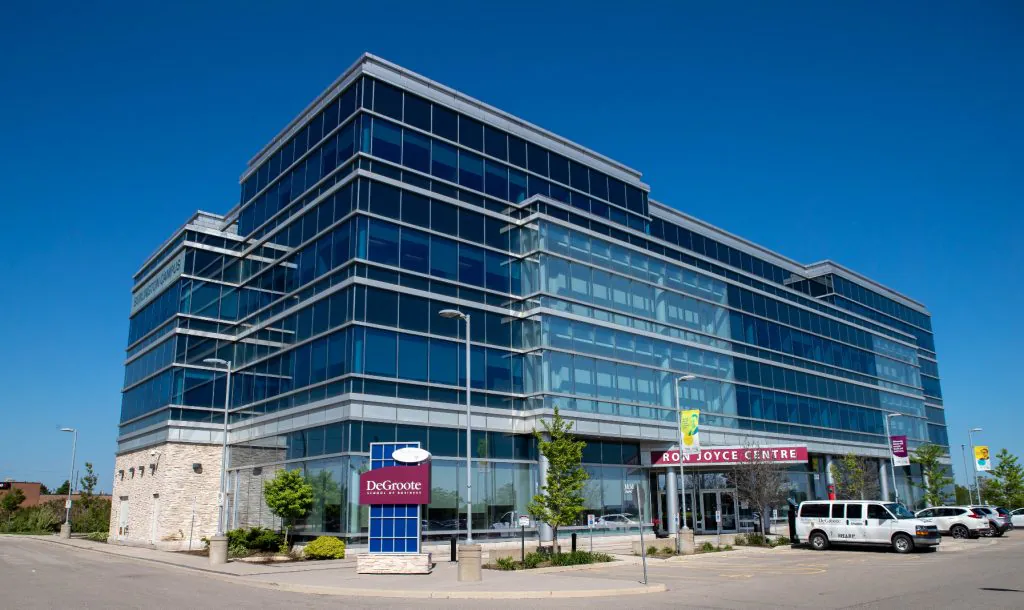
McMaster University’s DeGroote School of Business in Hamilton, Ontario produces some of the most employable business leaders in the country. The DeGroote School of Business offers a Bachelor of Commerce degree, the first two years of which put emphasis on the foundations of business. After students begin their third year of classes, they can earn admission to the honours commerce program, or remain in the bachelor program. There is also an Integrated Business and Humanities (IBH) degree program.
What sets DeGroote apart?
DeGroote commerce graduates rank in the top 95th percentile in North America in exit exams conducted by the Educational Testing Service.
An internship program with commerce students includes partnerships with major organizations such as Proctor & Gamble, RBC, Microsoft, Ford Motor Company of Canada Inc., ArcelorMittal Dofasco, IBM, Stelco, Wells Fargo, among others. In 2018/2019, commerce interns earned an average of $41,000 per year. Within six months of graduation, 97 per cent of students have found a job in their field.
Globally, the school is recognized as a leader in teaching, community, and research in healthcare management and digital technologies. Employers who hire from DeGroote’s co-op/internship programs include Canadian Tire, KPMG, Nestle Canada, CIBC, Dyson, Microsoft and other leaders in Canadian business.
There are also several professional designations you can work towards during your undergraduate degree. This means taking coursework to qualify for designation in CFA, CPA, CHRP, and CFP.
The Curriculum
As a commerce student you will gain knowledge and skills for positions of leadership in organizations spanning all sectors of the economy. You will study a wide variety of business subjects at DeGroote including Accounting, Finance and Business Economics, Human Resources and Management, Information Systems, Marketing, Operations Management, Strategic Management.
Admission Requirements
The admission average required from a Canadian high school is between the high 80s and low 90s and students must have a high school diploma plus six Grade 12 university level courses including English and math.
Locations
Hamilton, Ontario
Simon Fraser University Beedie School of Business

Simon Fraser’s Beedie School of Business in Vancouver was the first school in Canada prides itself on globalization and emerging markets research, as well as substantial focus on the environment and innovation technologies. As one of Canada’s hubs for international trade, entrepreneurship, and technology, the entire Vancouver area is used by the school with three campuses in the city.
The Beedie School of Business offers a Bachelor of Business Administration (BBA) program that prioritizes problem solving, case learning, and being able to adapt to a changing global market. Students can add further certificates and joint majors to their degree to stand out after graduation as well.
What sets the Beedie School of Business apart?
Students can use SFU’s career management centre, which works exclusively with BBA students to offer assistance and resources for projects. With access to workshops, company tours, and networking opportunities, the career management centre for BBA students is a significant resource for students to use.
Beedie’s marketing and human resource programs are extremely competitive, but the school has an employment rate of 90 per cent, with two thirds of those graduates joining business, finance, or administration programs. You can customize your studies in a responsive program tailored to your needs. Take a term off to try out co-op or go on an international exchange. The average four-month co-op term salary is $13,200. The top co-op employers include RBC, Canada Revenue Agency, Fraser Health and WorksSafeBC. The average BBA grad salary two years after graduation (2021) is $71,492.
The Curriculum
In year one you will learn foundation skills for business and career knowledge, while in year two you can consider more experiential opportunities such as co-op education, study abroad, case competitions and student organizations. In year three you will select your concentration from nine areas such as Accounting, Human Resources, Finance, Marketing and Operations Management. Courses such as Business in a Sustainable Society are built into the program.
Admission Requirements
Having high school marks in Grade 11 and Grade 12 courses in the 80s range or higher is required and students must meet SFU’s English language and quantitative and analytical skills requirements and all required Grade 11 and 12 course requirements to enter the BBA program. Students must also complete a Supplemental Application, or an eligible entrance scholarship application.
Locations
Surrey and Burnaby, British Columbia
Concordia University John Molson School of Business

The John Molson School of Business at Concordia University in Montreal welcomes more than 10,000 students each year. Roughly 8,800 undergraduate and 1,500 postgraduate students pass through the John Molson school annually. The John Molson School of business is another member of the Association to Advance Collegiate Schools of Business on our ranking.
What sets the John Molson School of Business apart?
The John Molson School of Business offers a Bachelor of Commerce degree, with nine specializations available for students to pick from. They include accountancy, economics, human resource management, marketing, and others. There is also a Bachelor of Administration program, which covers core business principles and entrepreneurship ideas.
John Molson Co-op programs provide students with hands-on work experience in some of Canada’s top corporations. Alternating academic semesters with work terms allows students to apply what they learn in the classroom in a real-world context. Co-op programs are offered in Accountancy, Finance, Human Resource Management, International Business, Management Information Systems, Marketing and Supply Chain Operations Management.
About 87 per cent of Bcom students are employed within three months of graduation and the average base salary for grads of the program in 2021 was $59,383. Employers who seek out Concordia grads include Accenture, KPMG, Manulife, McKesson, Bombardier, Bank of Montreal, BDO and others.
The Curriculum
The first year of the program provides knowledge of fundamental business concepts and operational skills that form the base for the core curriculum. The second year of the program builds on this foundation to provide a broad experience in all phases of business. The interdisciplinary nature of the program allows students to analyse, formulate, judge, and solve challenging business problems. The last year of the program provides students with an opportunity for in-depth study of a specific discipline.
Admission Requirements
Applicants must complete grade 12 in Canada with an overall average equivalent to a B and a B average in mathematics. All applicants must have completed the required mathematics and English courses (or French if they attended a French-language school) and must meet the requirements to graduate in their home province or territory.
Locations
Montreal, Quebec
HEC Montreal

Hautes etudes commeerciales de Montreal (literally translated to high commercial studies of Montreal) is a French language institution that focuses on management education and research. Opened in 1907, HEC is recognized as the first established school of management in Canada. Nearly 10,000 undergraduate students an additional 3,200 postgraduate students study each year at this central Montreal institution.
HEC is one of the oldest business schools in Canada, educating business leaders and since 1907. That experience and pedigree comes with rankings on not only our list, but others including Financial Times, Forbes and The Economist.
What sets HEC Montreal apart?
HEC offers a Bachelor of Business Administration in three language styles. Firstly, it is offered as a French course, with core courses being offered in Quebec’s official language. Secondly as a bilingual program with those courses being offered additionally in English. And lastly as a trilingual course with the third option being Spanish. The bachelor’s program lasts three years, with an optional but highly encouraged semester abroad offered as well.
The Curriculum
A highly personalized curriculum is on offer through HEC Montreal’s BBA program that’s trilingual: French, French and English, or a combination of the previous two and a new language. Fully fifteen specializations are also offered, alongside the AGIR course (a work-study experience), and courses developed to help incorporate current issues into learning, like sustainable development, social responsibility and entrepreneurship and innovation. All of this is capped off with an opportunity to study abroad and gain international business experience.
Locations
Montreal, Quebec
University of Waterloo Conrad School of Entrepreneurship and Business

The Conrad School of Entrepreneurship and Business is an academic unit within the University of Waterloo’s Faculty of Engineering. Since 2002, Conrad has been developing students’ marketable skills and partnering with industry leaders, such as RIM, the makers of Blackberry (also from Waterloo). Around 1,200 students each year come through Conrad School.
As one of the country’s tech hubs, often referred to as the Silicon Valley of Canada, students looking to make the next great technological innovation can get unprecedented experience with Waterloo.
What sets the Conrad School of Entrepreneurship and Business apart?
Waterloo’s business degrees provide a deep knowledge of a specific subject (your major) plus skills in marketing, finance, accounting, entrepreneurship and more. Business, entrepreneurship, and technology courses, enterprising co-ops, and minors in entrepreneurship are open to all undergrad students at Waterloo. There are three programs available specifically for engineering students as well. Students who are attending for business specifically, such as accounting and finance, can enroll in the entrepreneurial mindset career specialization, which covers customer experience, marketing, design, and leadership.
Through Waterloo’s top-ranked co-op program, you can gain up to two years of relevant experience and get paid while testing out careers before you graduate. You could work for Fortune 500 companies, startups developing the next big idea, government, non-profits, and everything in between.
Ranked among the world’s top ecosystems for entrepreneurs, the Waterloo region offers business incubators, mentors, funding, and a supportive network of fellow startups – all you need to turn your ideas into a business.
Our on-campus Accelerator Centre ranks top five in the world – and has a 93 per cent success rate, compared to the national average of only 51 per cent.
The Curriculum
Courses include Foundations of Entrepreneurial Practice, Business Technology and Infrastructure, Foundations of Venture Creation, Early-Stage Marketing, Sales Fundamentals, Business Negotiations and more.
Admission Requirements
Students considering the Business Administration and Computer Science double degree must have a high school graduating average in the mid-90s.
Locations
Waterloo, Ontario
Ted Rogers School of Management, Toronto Metropolitan University

Toronto Metropolitan University’s Ted Rogers School of Management in downtown Toronto is host to more than 12,000 students, split between undergraduate and postgraduate studies. The Ted Rogers school is accredited by the Association to Advance Collegiate Schools of Business, joining a few other mentions on our list as part of the international organization.
What sets the Ted Rogers School of Management apart?
TMU’s business school offers 12 bachelor of commerce specializations for students to choose from, 10 of which are honours programs. Co-op programs are available in every BCom program at the school. They include marketing management, hospitality and tourism management, economics and management science, and entrepreneurship to name a few. Ted Rogers also offers two bachelor of health administration programs in health services management and health information management. The two health programs are joint ventures between Ted Rogers and the faculty of community services.
TMU partners with employers such as PwC, Ontario Teachers’ Pension Plan, Deloitte, TD Bank and KPMG.
The Curriculum
TMU offers 12 different undergraduate business programs, including accounting and finance, law and business, health information management, and business technology management. Credentials across all 12 programs include the BComm (Bachelor of Commerce), BComm (Hons), and BHA (Bachelor of Health Administration).
Co-operative education opportunities are available through many programs, providing a bridge between academic theory and real-world experience that pays students up to $23 per hour while they learn.
Admission Requirements
Admission requirements are normally in the 70 percent range or higher and subject to competition. Candidates will be required to present grades above the minimum.
Locations
Toronto, Ontario
Dalhousie University Rowe School of Business

The Rowe School of Business at Dalhousie University in Halifax focuses on several of the pillars of business education. Accounting, finance, technology, supply chain and decision science, marketing, management, and strategy are all covered in Rowe’s classes. Dalhousie emphasizes disruption. The school expects students to find ways to challenge the standard and innovate on markets that have been set in their ways for decades.
What sets the Rowe School of Business apart?
Rowe is accredited by the Association to Advance Collegiate Schools of Business and has two undergraduate programs that prospective students can choose from: a Bachelor of Commerce co-op program, and a Bachelor of Management. The former includes a mandatory commerce co-op, completed over three terms at three separate organizations. The latter combines several practices including information management, environmental resource management, and administration. Both allow students to choose from several majors as well.
The Bachelor of Management (BMgmt) program opens a world of possibilities by uniquely combining Information Management, Environmental Resource Management, Public Administration and Business. This flexible degree allows you to fuse individual interests with management skills in a creative, practical and professional capacity. You’ll have the option of graduating with a general management degree or declaring a major in one of five major options – including Entrepreneurship and Innovation, Managing Data and Information, and Public Sector Management.
The class of 2018 BMgmt graduate employment rate was 84 per cent within six months of graduation and the average salary was $40,000 or more. The Bachelor of Management graduating class had an employment rate of 82 per cent within six months of graduation and reported a salary of $40,000 or more.
The Curriculum
For those who choose the Bcom co-op program, whether you choose to focus your studies by declaring a major, or customize your degree to meet your career goals, you’ll learn the basic business disciplines of marketing, accounting, finance, business management and organizational behaviour. You’ll also gain valuable IT skills as you learn to work with spreadsheet programs, database packages, and other software applications used in statistical analysis, financial projections, and market research. Sample courses include Business in a Global Context, Business Ethics and Corporate Social Responsibility and Production/Operations Management.
For those in the BMgmt program, you’ll start with a business and management foundation learning how to organize and lead organizations to respond to internal and external pressures. Sample courses include marketing, Ethics and Social Responsibility, Government Structure, Organizational Behavior and Working with Data. Once the foundation courses are completed students can focus on a particular aspect of Management through majors or certificates like Entrepreneurship, Leadership and Organizations, Managing Data and Information, Public Sector Management, Marketing, or Environment, Sustainability and Society. Students can choose from literally hundreds of minors and certificates from across the university: intercultural communication, Indigenous studies, biology, environment and sustainability, ocean sciences, theatre, journalism, and so many more.
To help you explore your options, you can choose to complete an 8- or 12-month paid internship where you’ll gain experience and skills while building your network and establishing a deep connection with your employer – all while earning academic credit and graduate on schedule.
Admission Requirements
The minimum overall average required is 75 per cent and include academic English 12, academic Math 12 and three additional academic subjects. This program may employ a competitive average for admission purposes; meeting minimum posted requirements does not guarantee admission.
Locations
Halifax, Nova Scotia
University of Manitoba

The I.H Asper School of Business at the University Manitoba was established 80 years ago and has provided world-class education to leaders of Manitoba and around the world. The school is accredited by the Association to Advance Collegiate Schools of Business (AACSB), one of the highest standards of achievement for business schools globally.
Whether you want to work with people or numbers, turn ideas into thrilling business ventures, or make a difference in the world around you, an Asper B.Com (Hons.) gives you the business knowledge, leadership skills and networking opportunities you need to achieve your dreams.
What sets the Asper School of Management apart?
The Bachelor of Commerce degree from Asper provides a broad-based general business education and the opportunity to specialize in one or two majors. Program options include co-op and international exchange.
For the Asper graduating class (Hons) of 2021, the employment rate was between 85 and 100 per cent depending on the major with Accounting and Actuarial Mathematics majors with a 90 and 91 per cent employment rate. As well, 80 per cent of Asper Bachelor of Commerce co-op students work for their employers after graduation. The average salary of all BCom graduates was $50,354 in 2021.
The Curriculum
Students can choose to achieve their BCom from 12 majors including Accounting, Actuarial Mathematics, Entrepreneurship/small business, finance, Indigenous Business Studies, International Business, Leadership and Organizations and Logistics and Supply Chain Management.
Students admitted to the Asper School of Business are required to complete 120 credit hours to complete the Bachelor of Commerce degree. Sample courses include: Commercial Law, International Political Economy, Exploring Indigenous Economic Perspectives, Sustainability Marketing, Supply Chain and Operations Management Financial Accounting, Financial Markets and Institutions.
Admission Requirements
The undergrad admission requirement is a high school diploma with an average of 85 per cent.
Locations
Winnipeg, Manitoba
University of Victoria Peter B. Gustavson School of Business

The Peter B. Gustavson school of Business in Victoria opened in 1990. Roughly 800 undergraduate students and 150 postgraduate students are enrolled in bachelors, masters, and PhD programs. As of the 2019-2020 school year, 77 per cent of Bachelor of Commerce Students found employment within the first three months of graduating.
The Gustavson Bachelor of Commerce program is an intro to the business world, focusing on building a network with small class sizes. Students in other disciplines can use the Gustavson school to minor in business as well. First and second year students are given introduction, or “pre-core”, classes in microeconomics, English, math and statistics. Third- and fourth-year classes get more in depth, with students able to choose between areas like entrepreneurship, international business, and service management.
The school is also responsible for the Gustavson Brand Trust Index, the only study from an academic institution rating customer’s trust in various companies. For those curious, CAA is currently the most trusted brand in Canada according to the annual Index.
What sets the Peter B. Gustavson school of Business apart?
BCom program is one of the only business programs in Canada that offers mandatory paid co-ops for all undergraduates. You’ll complete a minimum of three paid co-op work terms in Canada or internationally. The average monthly salary during work term sis $2,564 for Bcom students. The school partners with employers such as BC Ferries, Canadian Chamber of Commerce, Scotiabank, Whistler Blackcomb, KPMG LLP and Deloitte.
In 2020-2021, 86 per cent of BCom graduates were employed three months after graduation.
The Curriculum
The school’s 2+2 structure begins with building knowledge and skills unique to your own interests. You’ll then layer in business acumen and real-world experience. This structure allows you to gain the perspective, experiences and knowledge to confidently launch your career.
Year 1 and 2 are known as the pre-core years, which take place prior to entering the BCom core (Year 3). The first two years of the degree are devoted to broadening your knowledge through a diverse selection of topics in social sciences, science and humanities. This means you’ll gain skills and perspective from several disciplines, helping you better understand business issues in the real world.
Year 3 is referred to as the BCom core. The core is taught in an integrated format and adopts a cohort structure. You’ll acquire foundational knowledge in accounting, finance and marketing, managing people and systems, international business and corporate sustainability and social responsibility. You’ll learn how to tackle business problems with an innovative and holistic approach, while gaining valuable experience as part of a project team.
In Year 4, you’ll have the option to pursue a specialization and go on an international exchange for one academic term. You’ll continue to gain professional exposure and experience through co-op work terms and gear up to launch your career through a customized career preparation course.
Admission Requirements
Students who wish to be considered for admission must have a minimum admission average of 80 per cent and meet all other requirements. Meeting the minimum requirements does not guarantee admission to the BCom program. Applicants will be assessed on their admission average (60 per cent weight) and on other attributes (40 per cent weight) derived from the assessment of the supplemental application.
Locations
Victoria, British Columbia
Telfer School of Management

The Telfer BCom (uOttawa) is the flagship undergraduate program of the Telfer School of Management. The school has earned accreditations from the three most demanding ranking organizations in the world AACSB, AMBA and EQUIS place it in the top one percent of the world’s business schools.
The Telfer School of Management undergraduate programs are founded on leadership and teaching excellence, and focus on real-life, hands-on experiential learning to appeal to students with a wide range of interests and backgrounds. You can choose to specialize in one option, two options, pursue one commerce option with a minor in another faculty at the University of Ottawa, or fast track a dual degree.
What sets the Telfer School of Business apart?
The Telfer Bachelor of Commerce’s learning experiences encompass real-life case studies, directed readings and business simulations. There are also numerous opportunities throughout the school year to access the insights and advice of accomplished entrepreneurs, leading executives and notable government officials. Incoming students in Fall 2022 are enrolled in the newly revised BCom program. Learners will be able to either complete one option, two options, or one business option combined with a minor in another faculty.
Students can also earn a bachelor’s and a master’s degree within five years by applying to the Bachelor of Commerce + Master of Science in Management (research project) accelerated program. The Cooperative Program (CO-OP) gives you an advantage in the job market. Work in your preferred field of study while completing your studies, equipping you with up to 16 months (4 four-month work terms) of work experience before you graduate. The co-op program provides you the flexibility to work with one employer or many, gain professional connections who can help you enter the job market, and earn up to $12,000 per work term.
The program boasts a 98 per cent employment rate following graduation.
The Curriculum
The BCom starts with common core courses, such as Marketing, Financial Management and Organizational Behaviour, allowing you to gain an understanding of each key field of business. The courses within the program follow a logical sequence that enables you to build your overall business knowledge and become a specialist in your field of choice. Students can now choose from a variety of BCom degree structures, including: one business option; one business option, plus the complementary option in Entrepreneurship or in Business Analytics; two business options (i.e., Finance and Accounting); or one business option, plus a minor from another faculty.
Locations
Ottawa, Ontario
